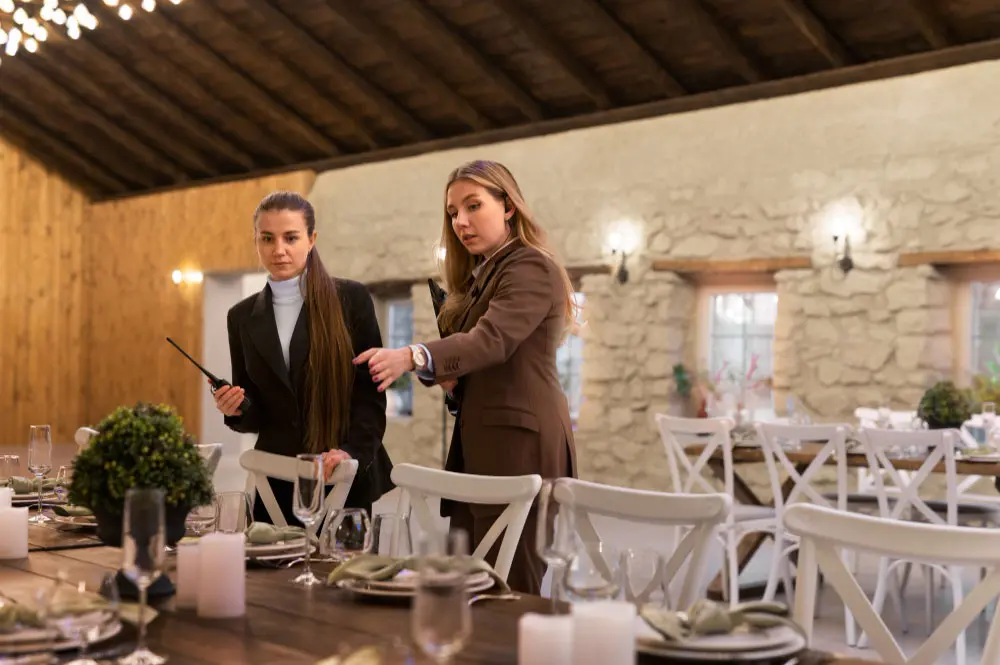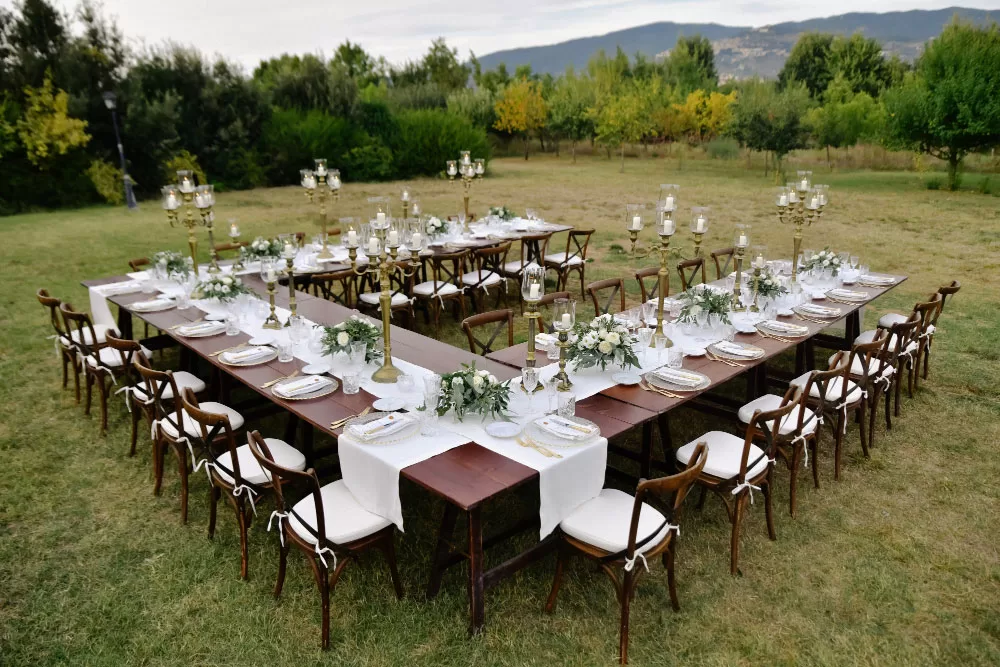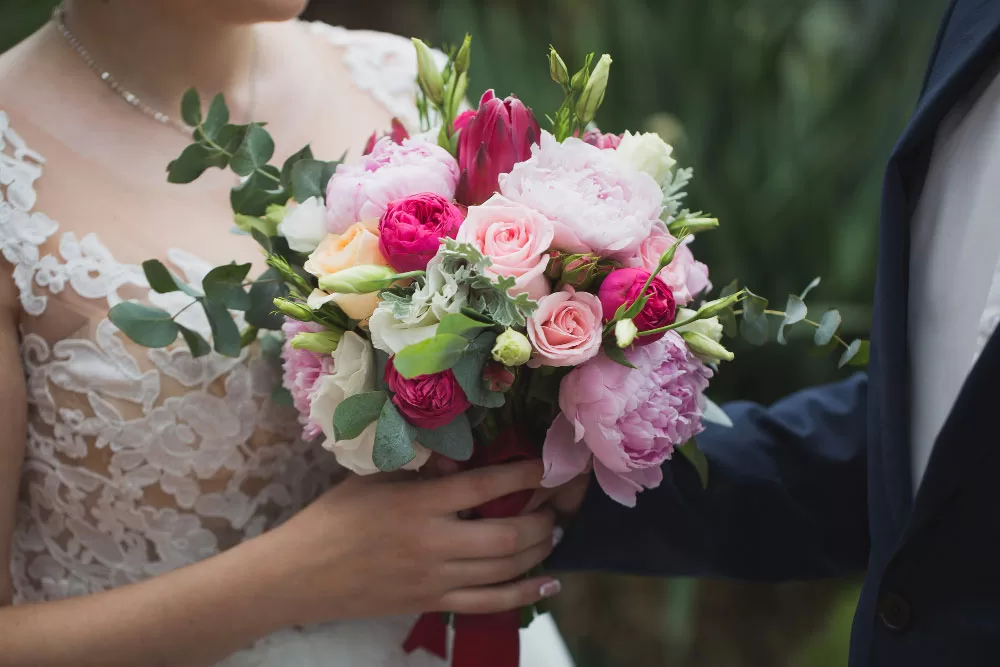10 Essential Tips for Keeping Your Event Budget-Friendly
Table of Contents
ToggleThe Importance of a Well-Planned Budget
An event budget, much like a compass, guides the planning process, keeping you on track and ensuring you don’t run aground financially. A well-structured budget allows for a realistic vision of the event, preventing unnecessary extravagances and helping prioritise spending. Without a well-planned budget, you run the risk of overspending, potentially spiralling into debt.
A well-crafted budget also serves as a financial blueprint, detailing where funds will be allocated. It allows you to have an overview of your financial landscape, helping you make informed decisions on where to spend and where to save. Having a budget in place, therefore, reduces stress and ensures a smoother planning process.
Understanding Your Event’s Financial Needs
Before going forward into the event planning process, understanding your event’s financial needs is crucial. This involves identifying the key components of your event and estimating the cost associated with each. The major aspects to consider include the venue, food and beverages, entertainment, decor, and marketing.
The venue often consumes a significant portion of the budget. Therefore, it’s essential to consider not just the rental cost, but also additional expenses such as utilities, insurance, and security. Food and beverages, another major cost component, must be carefully planned, keeping in mind the number of guests and their dietary preferences.
Entertainment can make or break an event, and it’s crucial to allocate a reasonable budget for this. However, remember that high cost doesn’t always guarantee high quality. Likewise, decor and marketing are vital elements of an event that require a well-defined budget. While decor sets the event’s ambiance, effective marketing ensures maximum attendance.
Top 10 Essential Money-Saving Tips for Event Planning
- Choose a Low-Cost Venue:
Consider unconventional venues like community halls, parks, or even your own backyard. These can often be rented at a fraction of the cost of traditional. venues. - Negotiate Vendor Contracts:
Don’t accept the first price offered by vendors. Negotiation can lead to significant savings. - Opt for Digital Invitations:
Save printing and postage costs by opting for digital invitations. - Unleash Your Creativity with DIY Decorations:
Get creative and make your own decorations. This not only saves money but also adds a personal touch to your event. - Hire Local Talent:
Local bands or DJs often charge less than their more famous counterparts. - Consider Off-Peak Dates and Times:
Hosting your event during off-peak days or hours can often lead to lower venue and service costs. - Bulk Buying:
Buy in bulk whenever possible. This can lead to substantial savings, especially when purchasing items like drinks and snacks. - Use Social Media for Free Marketing:
Use social media platforms to promote your event. This is a cost-effective way to reach a large audience. - Recycle and Reuse:
Reuse items from past events or recycle materials to create new decorations. - Monitor Expenses:
Keep track of all expenses, no matter how small. This helps keep the budget in check and prevents overspending.
Mastering Price Negotiations with Suppliers
Negotiating with suppliers can be daunting, but it’s an essential skill in event planning. Here are some tips to negotiate better prices. First, do your research. Know the average cost of the goods or services you’re negotiating for. This gives a broad base for negotiation.
Don’t be afraid to ask for a discount. Most suppliers expect negotiation and have a margin built into their prices. Also, be prepared to walk away. If a supplier isn’t willing to negotiate, don’t be afraid to look elsewhere.
Making the Most of Your Event Budget with DIY Projects
DIY (Do-it-yourself) projects are a great way to maximise your event budget. From making your own centrepieces to baking your own desserts, there are countless ways to save money by doing it yourself. DIY projects not only help cut costs but also lend a personal touch to the event, making it even more memorable.
However, it’s important to remember that time is also a resource. Before embarking on a DIY project, consider the time it will take and whether that time could be better spent elsewhere. In addition, not all DIY projects are cheaper than buying ready-made. Always compare the cost of DIY to the cost of buying before deciding to do it yourself.
Mastering the Art of Budgeting for Events
Mastering the art of budgeting for events is a journey. It requires patience, strategic planning, and a keen understanding of your event’s financial needs. But with these 10 essential money-saving tips, you are well on your way to crafting an unforgettable event, even on a shoestring budget.
Remember, the goal of budgeting isn’t to limit your creativity or make compromises. Instead, it’s about making informed decisions, maximising resources, and ultimately creating an event that’s memorable, not expensive.







